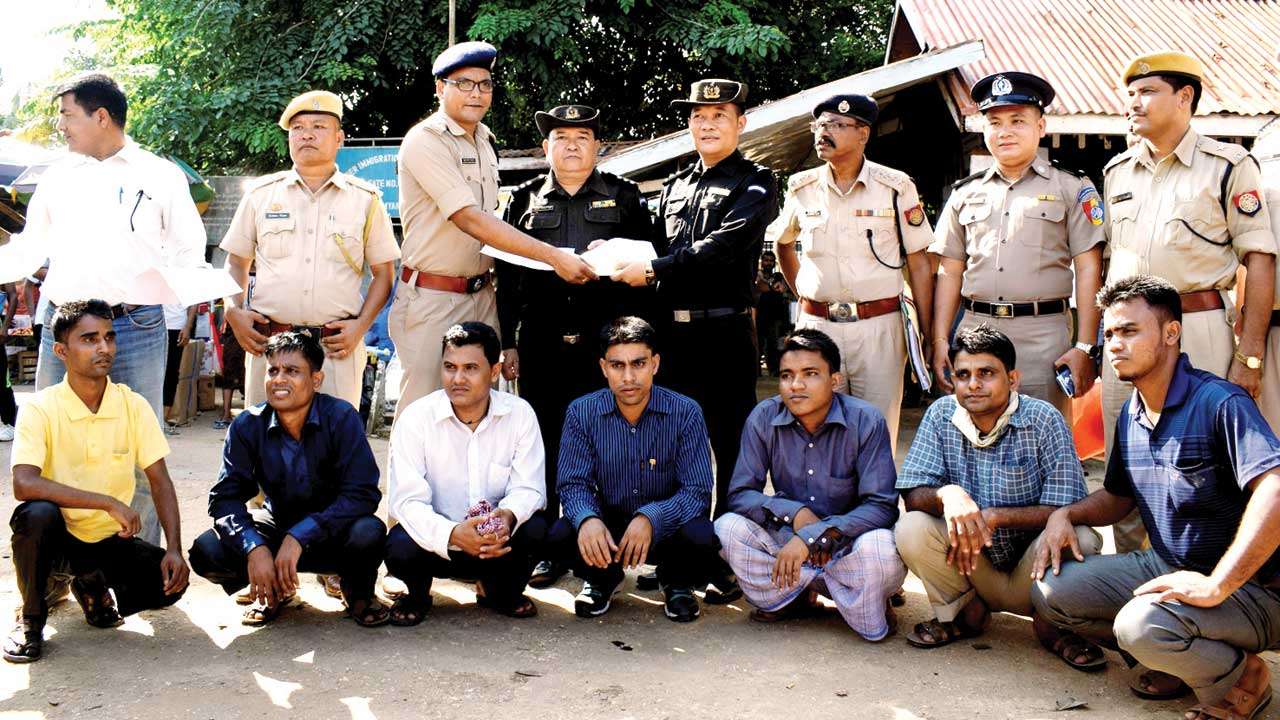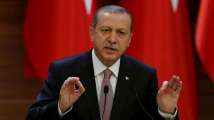Supreme Court blunts bid to block Rohingya deportation; govt sends 7 back

Rohingya The seven Rohingya to be deported sit as Indian, Myanmar security officials exchange documents on India-Myanmar border in Manipur on Thursday , Reuters
The Supreme Court on Thursday gave marching orders to the seven Rohingya Muslim migrants who entered India illegally from Myanmar in 2012. By doing so, the Court showed the way forward that once a competent court declared anyone as "illegal migrant" it won't come in the way of their deportation in the name of human rights. India has not deported any Rohingya Muslim in the past years, although their population in the country has steadily climbed to approximately 40,000.
With their deportation already underway, a last-minute attempt was made by advocate Prashant Bhushan who argued that even though they are illegal migrants, such persons need to be given refugee status as Article 21 as a right to life has been extended even to non-citizens by the Court in the past.
Blunting the suggestion, the bench of Chief Justice Ranjan Gogoi, Justices SK Kaul and KM Joseph shot back, "You do not have to remind us of our responsibility under Article 21" and went on to dismiss the application.
Minutes before, the Court satisfied itself of the facts about the seven Rohingya Muslims. They had crossed into India in 2012 along with 12 other Myanmar nationals. Chief Judicial Magistrate Cachar found them to be "illegal migrants" and sentenced them to three months' imprisonment under the Foreigners Act. Once out of prison, they were shifted to the detention centre at Silchar. Meanwhile, the Centre pursued talks with Myanmar government on the deportation of 19 Myanmar nationals (including the seven). The Embassy of Myanmar confirmed the nationality of seven of the 19 and issued a certificate of identity (CoI) to facilitate their entry into the country.
From this point on, hectic activity began at Centre's end as the CoI carried one-month validity. On August 18, 2018, Ministry of External Affairs requested Assam to prepare a detailed plan for the repatriation of the seven Rohingya Muslims. Finally, on October 3, a team of officials of the Assam government accompanied the seven migrants to the Immigration Check Post (ICP) at Moreh, Manipur. On Thursday, the Indian officials were supposed to hand over these migrants to their counterparts in Myanmar at this point.
Centre's law officer Tushar Mehta pointed out that once Myanmar had accepted them as its citizens there was no point to hold them back. But Bhushan insisted that the UN High Commission for Refugees be allowed to interview the seven persons. That's when the Court put its foot down and stamped its approval on the decision to deport.
MARCHING ORDERS, FIRST IN ROW
- 40,000 – Rohingya population in India (as per Union Minister of State for Home Affairs Kiren Rijju in Parliament)
- 16,500 – Rohingya who were registered with the UN High Commissioner for Refugees (UNHCR) in India
STATELESS LOT
- 10,90,000 – Stateless persons Buddhist-majority Myanmar has (one of the largest in world)
- 1,40,000 – Rohingya displaced after violence against the community in June-Oct ’12
- 1,20,000 – Rohingya internally displaced in camps in central Rakhine state






























